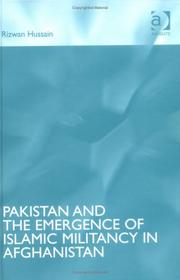| Listing 1 - 3 of 3 |
Sort by
|
Book
ISBN: 9781849040723 Year: 2010 Publisher: London Hurst
Abstract | Keywords | Export | Availability | Bookmark
 Loading...
Loading...Choose an application
- Reference Manager
- EndNote
- RefWorks (Direct export to RefWorks)

ISBN: 0754644340 Year: 2005 Publisher: Aldershot, UK : Ashgate,
Abstract | Keywords | Export | Availability | Bookmark
 Loading...
Loading...Choose an application
- Reference Manager
- EndNote
- RefWorks (Direct export to RefWorks)
Book
ISBN: 9781107126022 9781316421932 9781107571563 Year: 2017 Publisher: New York Cambridge University Press
Abstract | Keywords | Export | Availability | Bookmark
 Loading...
Loading...Choose an application
- Reference Manager
- EndNote
- RefWorks (Direct export to RefWorks)
This book explores why the Afghan-Pakistan borderlands have remained largely independent of state controls from the colonial period into the twenty-first century. It looks at local Pashtun tribes' modes for evading first British colonial, then Pakistani, governance; the ongoing border dispute between Pakistan and Afghanistan; and continuing interest in the region from Indian, US, British, and Soviet actors. It reveals active attempts first by British, then by Pakistani, agents to integrate the tribal region, ranging from development initiatives to violent suppression. The book also considers the area's influence on relations between Pakistan, Afghanistan, and India, as well as its role in the United States' increasingly global Cold War policies. Ultimately, the book considers how a region so peripheral to major centers of power has had such an impact on political choices throughout the eras of empire, decolonization, and superpower competition, up to the so-called 'War on Terror.'
| Listing 1 - 3 of 3 |
Sort by
|

 Search
Search Feedback
Feedback About UniCat
About UniCat  Help
Help News
News